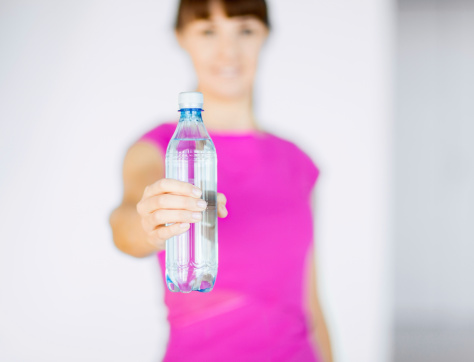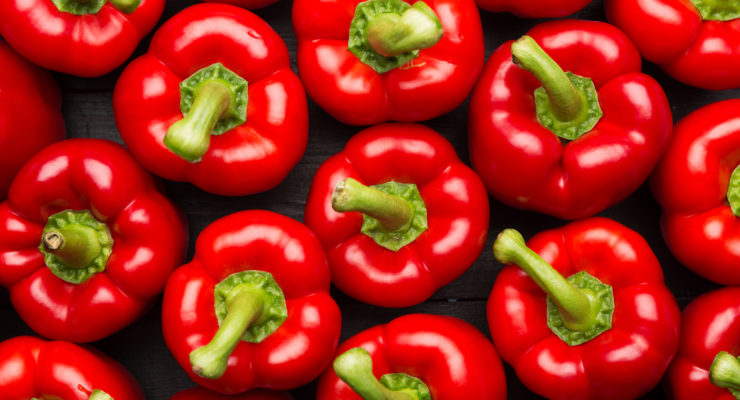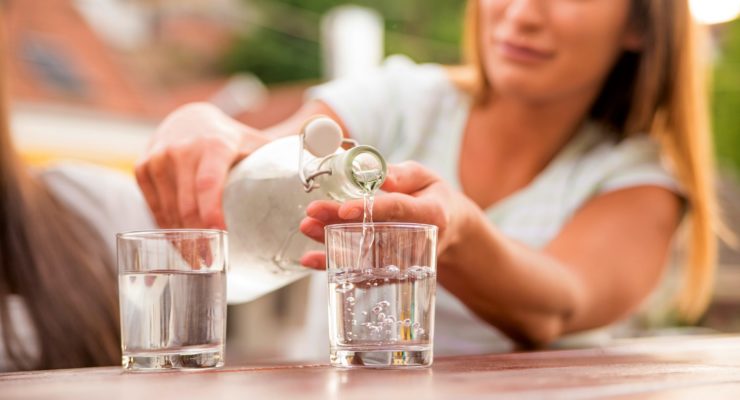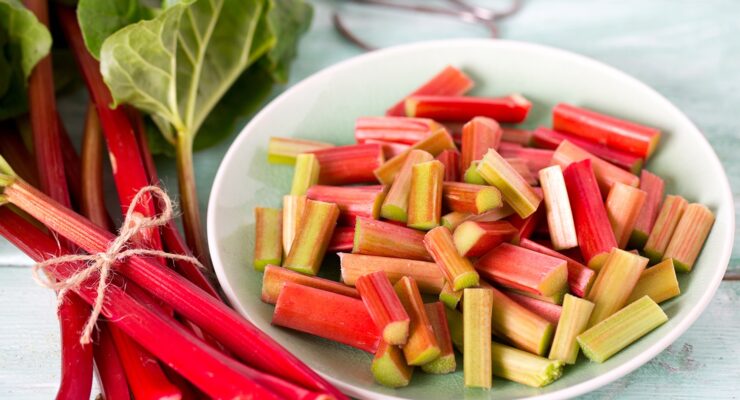Electrolytes: Get Your Fill to Stay Hydrated and Healthy
Article posted in: Fitness Diet & Nutrition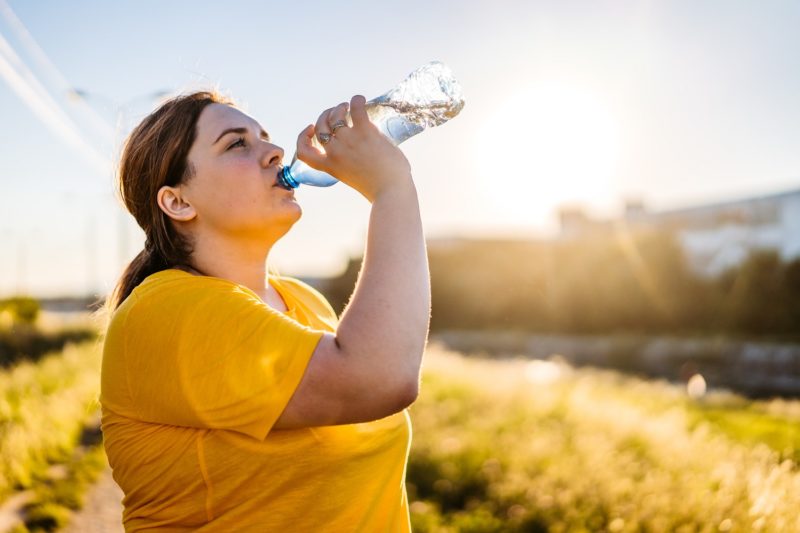
You’ve probably heard of electrolytes in TV commercials about sports drinks, or maybe they’ve come up in discussions with your doctor. Do you wonder what electrolytes are or why they are so important? Do you know how to get electrolytes? Knowing how to incorporate electrolytes into your daily life can boost your health, help you feel better and keep you strong on the way to your weight loss goals. Here’s what you need to know.
What Are Electrolytes?
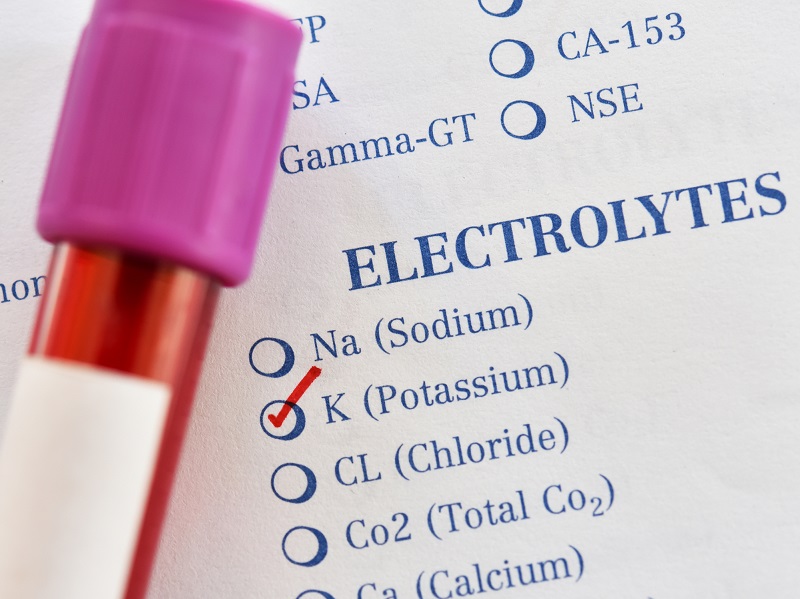
Electrolytes are essential minerals and other compounds that help our bodies to function properly. Three of the most critical electrolytes are familiar nutrients—sodium, calcium and potassium—that serve the widest range of functions across organs in the body. Magnesium, phosphorus and chloride are other electrolytes we need, although they tend to have more specific functions in the body.
Electrolytes have a very small electrical charge, and so they help to transmit signals from your nerves to your brain. Your body depends on electrolytes to contract your muscles and to keep your heart beating steadily. These minerals also give your body the resources it needs to build new cells and repair damaged tissues when you are bruised.
Electrolytes are needed to create blood clots if you are bleeding from a cut or wound. They also are critical to maintaining and regulating the fluid levels in your body, so you stay hydrated and feeling energetic, which are essential to losing excess weight safely.
Maintaining healthy sodium and potassium levels also protects your heart’s health. Click here to learn more about this connection! >
What Happens When Your Body is Low on Electrolytes?

Blood tests and other medical exams measure the amounts of the different electrolytes in your body, but you don’t have to visit the doctor to feel like your levels are off. When you are low on electrolytes, you are likely to be dehydrated. Feeling thirsty is a familiar sign of dehydration, but you can be dehydrated without noticing that you need to take a drink. If you are tired or have low energy even though you have had plenty of sleep, you may be low on fluids or electrolytes.
Dizziness, cramping and mental confusion are other signs of low electrolytes levels or dehydration. More serious symptoms include vomiting, numbness and tingling, changes in blood pressure, muscle spasms or weakness, abnormal heart rhythms and trouble breathing. Chronically low, high or imbalanced electrolyte levels can lead to seizures, kidney or heart failure and even death.
The most common cause of an electrolyte imbalance is dehydration from losing fluids. That can be from excessive sweating, vomiting or diarrhea. If you don’t drink enough or eat a healthy diet, you are likely to have minor electrolyte imbalances. (How can you be sure you are drinking enough? This article gives you easy-to-follow guidelines! >)
More serious conditions, such as emphysema and other chronic respiratory problems, and medications such as diuretics, laxatives and steroids also frequently disrupt electrolyte levels.
Slightly low or high levels of electrolytes can cause symptoms that may seem like ordinary discomforts, such as fatigue, headaches, muscle aches or nausea. If those persist and become daily problems, tell your health-care provider about it so your electrolyte levels can be checked.
The specific symptoms you experience will depend on the specific electrolytes that are out of balance. Learn more about the different symptoms for different electrolyte imbalances below:
Sodium. “Hyponatremia” is what doctors call the condition when sodium levels are excessively low. Excessive sodium amounts causes “hypernatremia.” Either extreme can produce personality changes, headache, confusion, and lethargy. Severe cases can result in a coma and death.
Calcium. Most of us know that we need plenty of calcium for healthy teeth and bones. If you don’t get enough calcium over the long-term, you may experience changes in your skin, nails and hair. Low calcium levels are also linked to yeast infections. Very low calcium levels could lead to problems with your reflexes or larynx. On the other hand, excess calcium can cause constipation, loss of appetite, nausea, vomiting, abdominal pain and bowel obstruction. Extremely high calcium levels in your body can damage kidneys and lead to heart problems, including heart attacks.
Potassium. When you have too little potassium, you are likely to experience muscle weakness, spasms, cramps, paralysis and breathing problems. Kidney problems may also occur. High potassium levels can lead to muscle weakness and abnormal heart beat. The heart can even stop beating if levels become too high.
Magnesium. Low magnesium levels tend to lead to symptoms that are similar to low potassium or calcium levels. Consistently high magnesium is linked to trouble with breathing, low blood pressure and cardiac arrest.
Chloride. Very low or high chloride levels can occur after frequent vomiting or diarrhea. Symptoms are uncommon unless the imbalance is severe, but may be similar to those of sodium imbalances as they are closely related.
Phosphorus. Chronic alcohol abuse may produce sharp dips in your phosphorus levels. Some people who have diabetes may have low amounts of phosphates, which can lead to “ketoacidosis,” a serious complication that has dramatic effects on your metabolism and your blood’s healthy pH. High phosphates doesn’t usually produce symptoms, but may be a sign of a more serious problem like infection or chronic kidney disease.
How Do You Get Electrolytes?
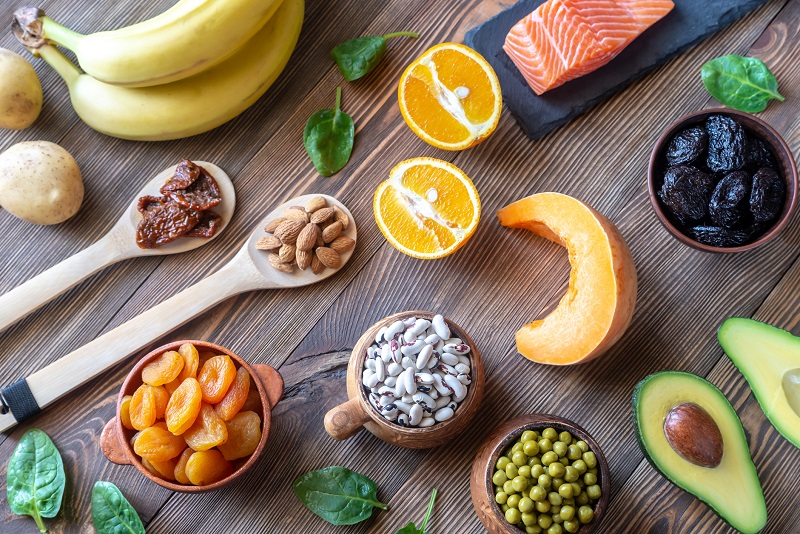

Electrolytes may sound like special additives that you can get only from sports drinks or other products, but the truth is much simpler. There is no secret formula for keeping your electrolyte levels in balance. Rather, a well-rounded healthy diet and smart eating habits is all you need in most cases to supply you with electrolytes. According to Medical News Today, “Most people can get enough electrolytes from their regular diet, and they do not need to supplement with sports drinks or oral rehydration supplements.” Even better, your Nutrisystem healthy eating plan guides you to foods that are loaded with electrolytes.
Let’s start with the most basic element: water. Dehydration is both a cause and a symptom of electrolyte imbalances. The best way to prevent and correct dehydration is to follow the recommendations of Nutrisystem’s expert dietitians and drink at least 64 ounces of water each day. Drink more if you’re sweating a lot after a hard workout in summer or if you have had a fever, vomiting or diarrhea. Keeping yourself hydrated also helps stoke your metabolism, so you’re burning calories steadily throughout your day.
The foods you eat are the best way to keep your body supplied with the electrolyte minerals. Learn more about the food sources of electrolytes below:
Sodium. We typically eat more sodium than we need. That’s because it’s added in the form of salt to many foods, even those that don’t taste salty. When shopping for your Flex meals, we do recommend choose low-sodium products whenever possible. However, if you have lost a lot of fluids from sweating or other causes, you can help restore your sodium levels naturally by eating pickles, olives and dairy products, or by adding extra table salt to your meals. You get a potent dose of sodium (and a tasty appetizer) when you make these Air Fried Pickles.
Calcium. Dairy products such as non-fat milk, yogurt and cheese are rich sources of this nutrient. Leafy green vegetables like kale and spinach, also provide you with substantial amounts of calcium (plus magnesium!). Our Grilled Feta Salmon Burger offers you two sources of calcium in every tasty bite.
Potassium. Bananas are well-known for their high potassium content. You get even more of this nutrient from dried apricots, avocados, squash and sweet potatoes. Keep your potassium levels topped off and your taste buds happy with Grilled Chili Cheese Stuffed Sweet Potatoes.
Magnesium. Magnesium is easy to get from a wide variety of foods. Stock up on nuts and seeds, lentils, kidney beans, soy beans, dairy products and potatoes. Spinach is a good vegetable source of magnesium. Our healthy version of spinach dip includes plenty of calcium-rich nonfat Greek yogurt along with the magnesium in the nutritious leafy green.
Phosphorus. Potatoes, dairy products and cashews provide you with a lot of phosphates. Lentils, kidney beans and soybeans do, too. Vegetarians can get phosphorus from tofu, which we love to make in our Air Fryer Orange Tofu recipe.
Chloride. You get chloride from table salt (known to scientists as NaCl or sodium chloride). However, adding lots of salt to your food isn’t always a healthy choice. Instead, include foods that naturally contain chloride in your meals, such as tomatoes, celery, lettuce and olives. If you like Asian cuisine, seaweed is a common ingredient that is rich in chloride. Cauliflower Stuffed Tomatoes is a delicious way to top off your electrolyte levels and enjoy two servings of non-starchy vegetables.
Do I Need a Sports Drink to Replace Electrolytes?
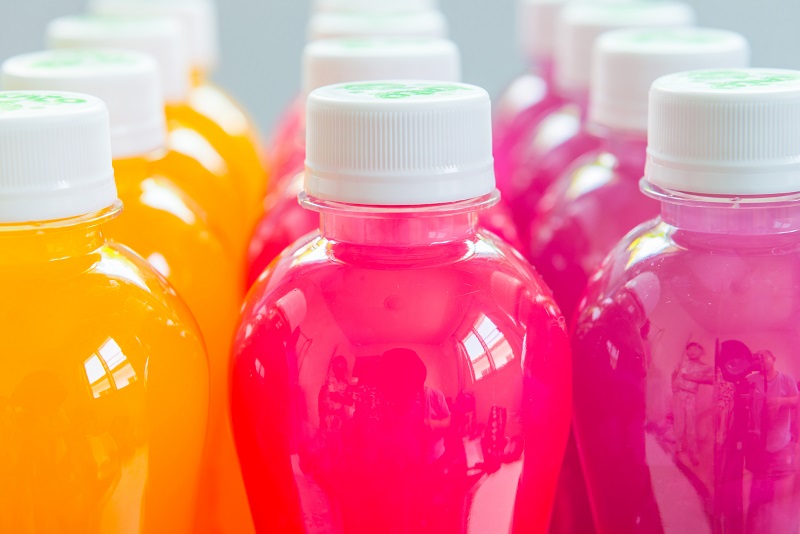

After a workout, you might want to reach for one of the many types of sports drinks promoted by world-class athletes. The problem is that many of these drinks are loaded with excess sugar and empty calories. Plus, is this really the best way to replenish your electrolytes?
According to experts at Cleveland Clinic, you should opt for regular water if your work out is an hour or less. If you’re breaking a sweat for 75 minutes or more, you may want to consider a beverage that contains electrolytes during or after your exercise. Just make sure to read the nutrition labels and keep in mind that some sports drinks are specifically formulated for endurance athletes.
If would like a drink with a little extra kick of electrolytes, unsweetened coconut water is a popular choice. However, keep in mind that it may not be the best option for long workouts since it has less carbs and sodium than standard sports drinks. Cleveland Clinic explains that it’s a good option if you’re simply looking for a more natural electrolyte beverage.
Looking for more tips on shopping for drinks? Our Grocery Guide for the Beverage Aisle tells you what to look for when buying beverages so you can pick the healthiest options.
Always speak to your doctor before starting a new supplement or making any changes to your diet. Speak to your healthcare provider if you have any questions or concerns about electrolytes, hydration and/or supplements.

